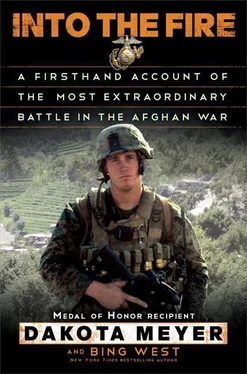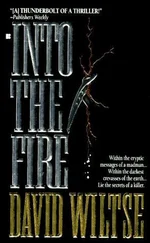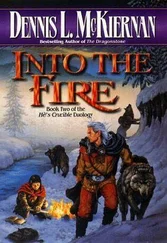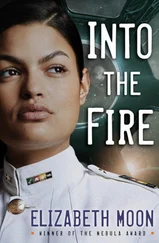Allen sent the file to Gen. James N. Mattis, who commanded the Central Command. Mattis was a tough grunt famous for once quipping, “Be the hunter, not the hunted.” He compared the statements in my packet with those attesting to Swenson. Most were identical or highly similar. He handwrote a strong endorsement, stating that he had no doubt that Swenson deserved the Medal of Honor. He sent his endorsement to the Army chain of command in the States.
Finally, after a lapse of two years, the Army as an institution seemed poised to do the honorable thing. I waited a few months for word that Swenson would be recognized. But no one in the Army called Will.
So in November of 2011, I decided to send my objections directly to the White House. It was unjust that I had stood at attention before our commander-in-chief without Capt. Swenson at my side. Below is a condensed version of the email that I sent to Lt. Gen. Douglas Lute, U.S. Army, the senior officer on the National Security Council staff. Lute had the reputation of being a straight shooter.
Dear General Lute ,
I would like my testimony about the valor of Capt. Will Swenson to be received by the proper authorities. At Ganjigal, it was Swenson that I heard repeatedly calling for fires. It was clear he was running the show and was the centerpiece for command and control in a raging firefight that never died down .
Our group consisted of Swenson, Fabayo, Rodriguez-Chavez, me, and a brave Afghan interpreter named Hafez. From 0745 on, we were together. Swenson tried to get that platoon to help us. When I couldn’t get the body [of Dodd Ali] into the truck, Swenson hopped out and completed the task. We made several trips in looking for my advisor team, bringing out some wounded and dead each time .
Swenson controlled all the helos. He picked out the targets and kept situational awareness, radioing cardinal directions and distances. Not everyone can do that when bullets are continuously hitting the sides of your truck .
Swenson was not the senior commander; he just took over and everyone deferred to him. To the extent that anyone was in charge on that chaotic battlefield over the course of six or seven hours, it was Captain Will Swenson .
Bottom line: I would not be alive today if it were not for Will Swenson!
Sincerely, Dakota L. Meyer
General Lute was very courteous. He assured me he had looked into the matter and sent my email to the proper authorities in the Army. When no one contacted me for my testimony, I chose to believe that the Army had thoroughly investigated Capt. Swenson’s conduct during the battle and had no need of further testimony. Throughout the summer of 2012, the Army continued with its internal reviews.
I am sure the Army will eventually reach the right conclusion. Capt. William Swenson fully deserves the Medal of Honor for his gallant leadership and valor. Only when that happens will fairness and accountability have prevailed after Ganjigal.
Dakota looked like he was going to a funeral when I met him in a hotel lobby near the White House two years after Ganjigal. His family, friends, and battle buddies were chatting in amiable groups, occasionally waving in our direction. He nodded somberly, responding civilly to a situation he wanted to avoid. He looked around, bemused.
“Can you believe this is happening?” he said.
I had met Cpl. Meyer at Combat Outpost Monti a few weeks after the Ganjigal battle. I was embedded for a second time with Battalion 1-32, and Lt. Jake Kerr insisted that I meet the “pit bull.” I included a chapter about Ganjigal in a book called The Wrong War , then turned to other writing assignments.
A year later, Dakota asked if I would write a book with him. I demurred, explaining that an agent could provide him with many qualified writers. That wasn’t the point, Dakota said; he wanted a grunt to deliver his message.
“I can write about battle,” I said. “But I don’t want to hear about your sex life.”
“Don’t worry,” he said. “You’re too old to remember what that is.”
* * *
Hmm. I had written my first book, Small Unit Action in Vietnam , in 1966. While that had been several decades before Dakota was born, it wasn’t exactly as long ago as World War I. Since then, I’ve been in battles in jungles, villages, deserts, and mountains and written seven books about combat that shared one trait: chaos. Every retelling of battle is a description of confusion.
Ask a dozen players to reconstruct a football game and you will get a dozen differing accounts. Imagine, then, the confusing recollections after a battle. The Ganjigal battle, given its ferocity and the antagonisms toward the staffs in the rear, had a number of contradictions in the footnotes citing the sworn statements of the participants.
There is agreement, however, about the overall narrative. I was not present at the battle, although I had embedded several times in the Ganjigal region and knew many of the soldiers and advisors. This book is based upon hundreds of hours of discussions with Dakota. I’ve also talked with other participants and have pored over dozens of witness statements and investigations. The quotes are illustrative and not the actual words used in the fight. These are his words and expressions. This is Dakota’s account from start to finish.
In its ferocity, valor, treachery, and bungling, Ganjigal was extraordinary. The battle resulted in thirteen friendly fatalities, two investigations, two reprimands for dereliction of duty, one Medal of Honor and the “loss” of the recommendation for a second Medal of Honor. A writer imposes coherence upon chaos by selecting a point of view and developing themes that tie the narrative together. The focus of this book is the character growth of Dakota Meyer. His story stands as a metaphor for the war. It illustrates three themes: a frustrating war, a misplaced strategy, and the grit of the American warrior. Let’s look at each of the three.
First, the frustrating war has no end point. by giving the Taliban a sanctuary, the Pakistani generals have ensured that the war will not go on indefinitely. Our soldiers are fighting only so that Afghan soldiers can take over the fight. In Vietnam, I patrolled in a dozen villages like Ganjugal, where the farmers were inscrutable and enemy without uniforms sprang ambushes. Afghanistan is a similarly elusive and maddening war, where the host government is unreliable and tribal loyalties are suspect.
That medieval culture defied reshaping by our policymakers. President Obama called Afghanistan “the good war” and doubled the number of troops, followed by ordering a withdrawal. Our troops have taken the war to the enemy and placed the Islamic terrorists on the defensive. That’s about as much as can be done. Wars fought for fuzzy objectives are not guaranteed to succeed.
Such irregular wars will repeat regularly. Because we are a nation that pursues success, we are frustrated by such ambiguity. We don’t want to divide our country, as in the Vietnam era, when there was an unpopular draft. That is why we have an all-volunteer force. We need warriors like Dakota who fight willingly when our elected commander-in chief gives the order.
A second theme that emerges is strategic overreach at senior operational levels. Our generals insisted that democratic nation-building was the only viable military strategy. Grunts like Swenson and Meyer knew nation-building was too ambitious. A thousand years of culture, religion, and traditions separated us from the tribes.
No outpost was ever established in the valley of Ganjigal. Qari Zia Ur-Rahman, the Taliban commander during the battle, was a hard-core Islamist dedicated to winning. He often boasted of his victory at Ganjigal and circulated pictures of the equipment taken from the bodies of Team Monti. Despite a $350,000 bounty, Rahman has remained in command of Kumar for years without being betrayed, a disturbing indicator of the tribal loyalties and the balance of power along the 1,500-mile border. In ten years, U.S. leaders failed to develop a method for changing the nature of the Islamic mountain tribes.
Читать дальше












